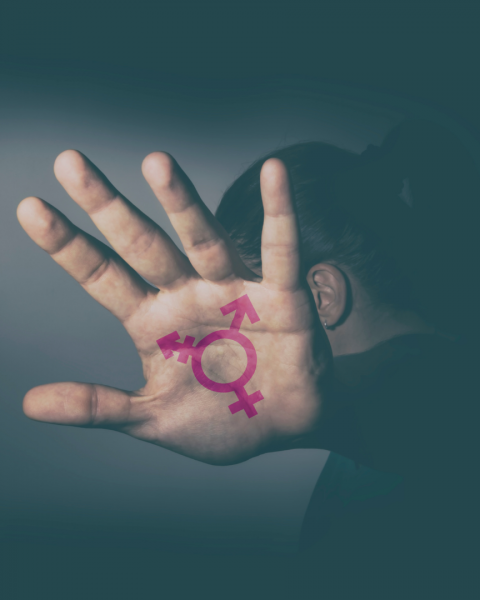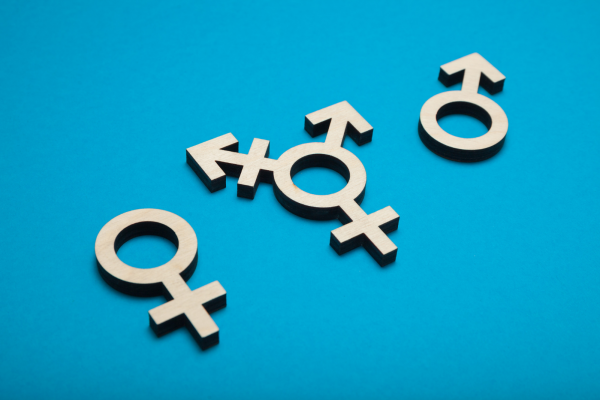By: Sue Glassy, Chair of IFMA Gender Equality Commission

The more I get into this topic and the more I research, take in and discuss my misunderstandings with experts on the subject of trans female in sport, the more my real fears are being alleviated.
Fears like, won’t the extra testosterone mean that it will be like fighting a male? I know men can lift more weight and sprint faster than women, I am conditioned by society to think men are better, stronger, faster than me (I’m a female) solely because they went through puberty with more testosterone than I did. If I spar a male in the gym even at the same weight I can feel the difference in the contact. These are things that worry me about putting a cis female in the ring against a trans female.
BUT …
I have learned that testosterone is not the sole marker of a male athlete. However, when I look at the nuances of the human body and connect it with Muaythai I notice that in one weight division, male or female, an athlete’s body can differ drastically, height, size, muscle definition, amount of body fat, speed, reaction time and power, to name a few. This is without going into the tactics of ring craft and an athletes ability to read an opponent and predict what might be the best way to out manoeuvre him or her. This makes me think that if a muaythai bout can be won by a smaller, thinner, less muscular athlete, then does going through puberty really make a difference?
THEN …
My mind thinks what if a man isn’t good enough to win in the male divison can he just ‘change’ and enter the female division? Rules and policies are there to ensure th athletes are safe and the competition is fair. I moved on to wondering would any cisgender male fighter pretend to be a female to win a fight and I thought -definately not! This is a fear people have voiced, but to my way of thinking it is unfounded. To compete as a female they would have to live as a female for a minimum of 4 years, take estrogen and ensure their testosterone levels are below 10 mL for a full year coming up to their competition. I am certain that a cisgender male would not put themselves through this for a chance to win a medal. So this makes me wonder, if a transgender female would go to all that effort to prove they believe they are a female then why not allow them to compete? I have seen many cisgender females (usually athletes) that look more masculine than most transgender females.
HOW …
My thoughts are that this subject needs proper investigation. We are an inclusive sport, an IOC recognised sport and it is our responsibility to encourage all poeple to practice our wonderful sport regardless of gender. I have heard – create a third catagory, let them compete against themselves. This sounds logical on the surface. It took women 16 years to reach participation parity and though this is a form of equality, I only need to look to the National Federations around the world that still don’t allow women to compete or hold leadership positions to know that equality for women is still a long way in the future. And the population of women in the world is pretty close to 50/50 split. However, the population of the transgender community is less than 1 %, so it would be even less for transgender female athletes. This means a third catagory would only be another way of excluding them from competing in our sport.
NOW WHAT ???
We need to find out if we already have transgender female athletes participating in the sport of muaythai. We need to research history and learn the truth about the percentage of transgender female athletes actually winning against cisgender female athletes – in any sport. We need to look into the specifics of our own sport and see how, if, and when etc. transgender incusion could be introduced. We do not want to tell a child they can’t compete in a female category because they are born male, even if they feel they are female. Often transgender female people have a lot of female attributes and in many circumstances you might not know they are not biologically female. Going forward, this process needs to be well researched and robustly discussed. Transparency is key and an understanding that the narratives we are fed by the media are not necessarily the truth.

What is IFMA’s standpoint in all these post Olympic discussions?
There isn’t one yet because as we have learned there is a lot of misinformation out there and a lot of real fears and questions around transgender female inclusion in Muaythai. The IFMA must develop a policy on transgender inclusion and how it might look in the world of Muaythai. However, it is not one that will be quickly written just so it can exist. It will be done thoroughly and with integrity and transparency so that all our stakeholders can understand the process and have the chance to ask the questions they need answered. I think that together we can come to a place where we will be able to begin to write a policy, but that point is not here yet.


